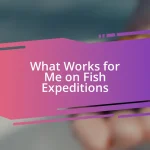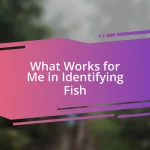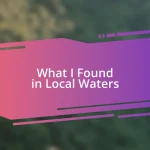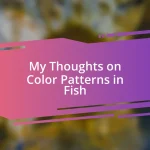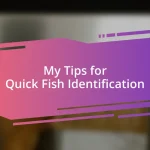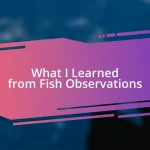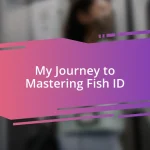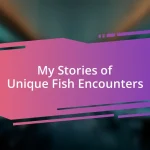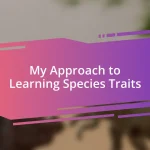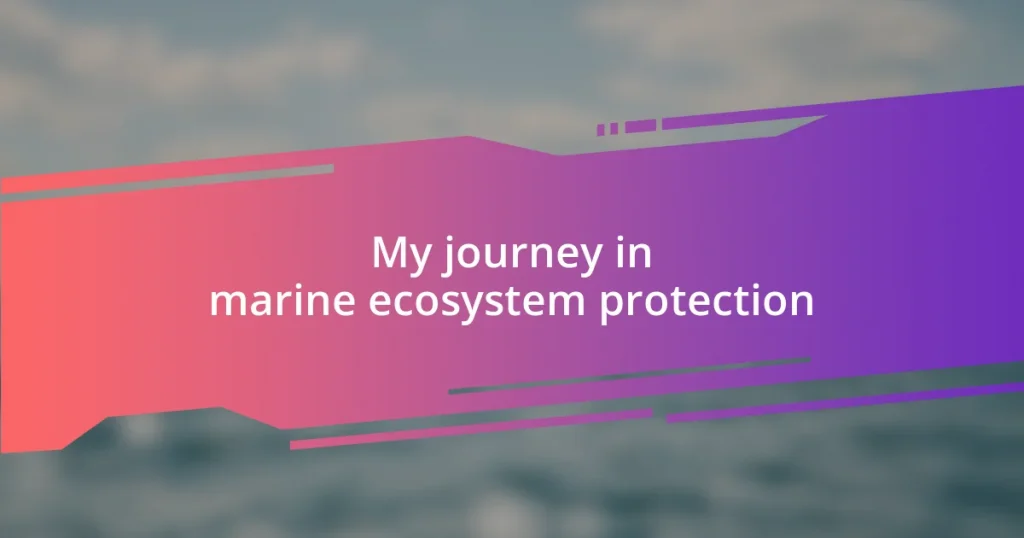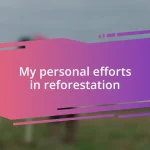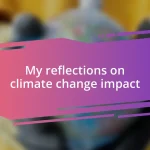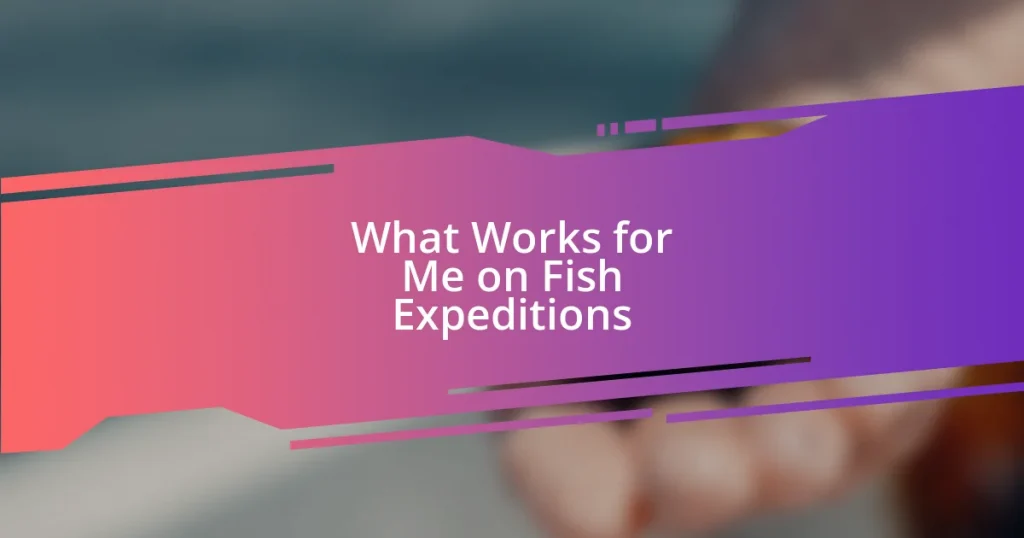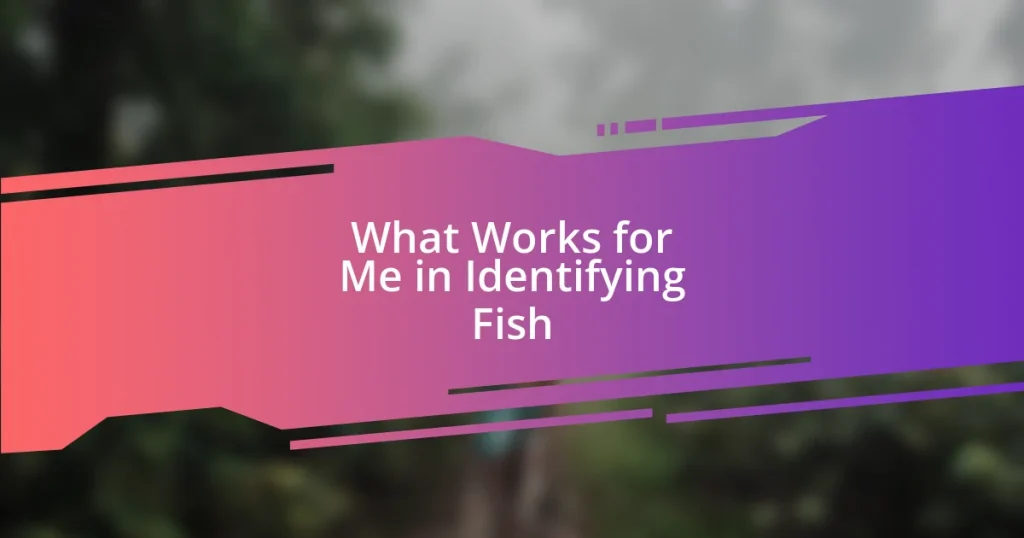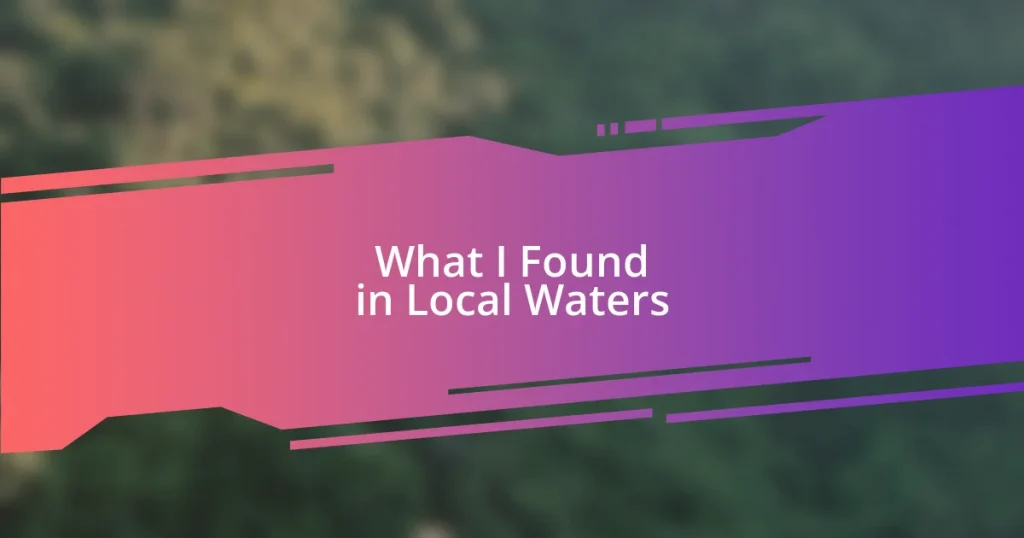Key takeaways:
- Marine ecosystems are essential for oxygen production, climate regulation, and supporting diverse life, making their preservation crucial for future generations.
- Key challenges in marine conservation include overfishing, pollution, and climate change, all of which threaten marine biodiversity and ecosystem health.
- Effective preservation strategies involve community engagement, sustainable practices, education, policy change, and restoration projects, empowering individuals to advocate for marine health.
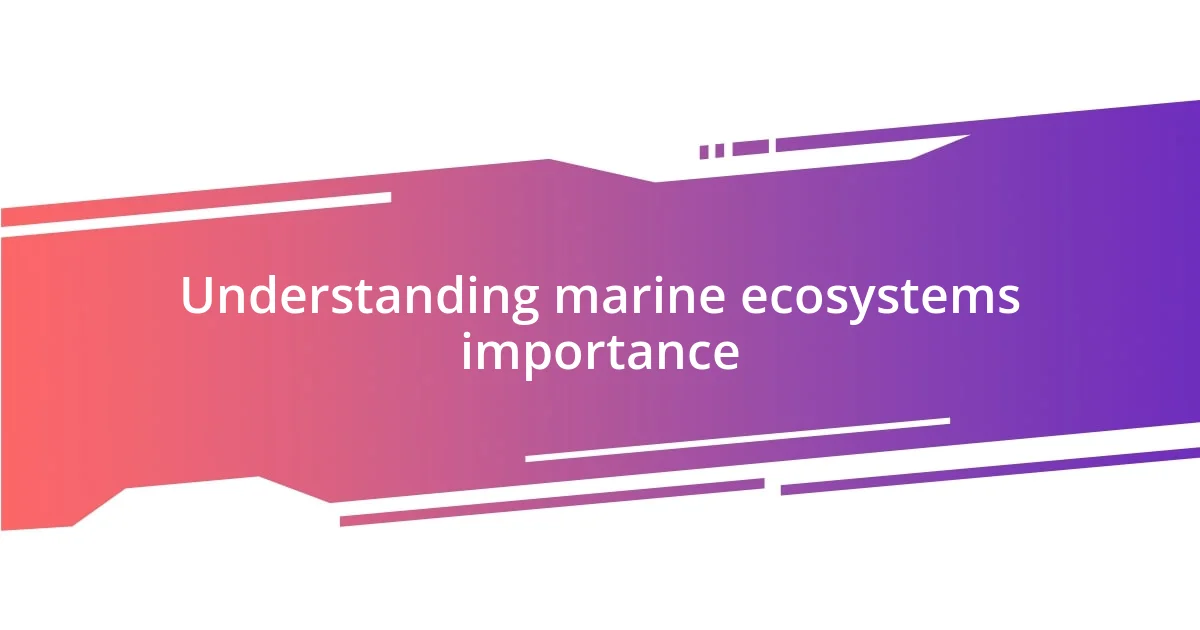
Understanding marine ecosystems importance
Marine ecosystems are often described as the lungs of our planet, and for good reason. Every time I catch a whiff of salty air at the beach, I’m reminded of how vital these ecosystems are for producing oxygen and regulating our climate. Have you ever thought about how much we rely on the oceans for the food we eat and the water we drink? The ocean is a dynamic source of life, supporting millions of species, including our own.
Reflecting on a summer dive trip I took years ago, I vividly remember descending into a coral reef teeming with fish and vibrant colors. It was like entering another world! That experience drove home the reality that these ecosystems are not just beautiful; they provide essential services like coastline protection and habitat for wildlife. Losing even a small piece of that delicate balance can lead to real consequences, like increased erosion or species extinction.
I often ask myself: what would our world look like without healthy oceans? The thought is unsettling, and it emphasizes the necessity of preserving marine ecosystems. By maintaining these underwater treasures, we ensure that future generations will have the chance to explore, enjoy, and rely on the ocean just as we do today. Each reef coral, mangrove tree, and kelp forest tells a story of resilience and beauty that we must cherish and protect.
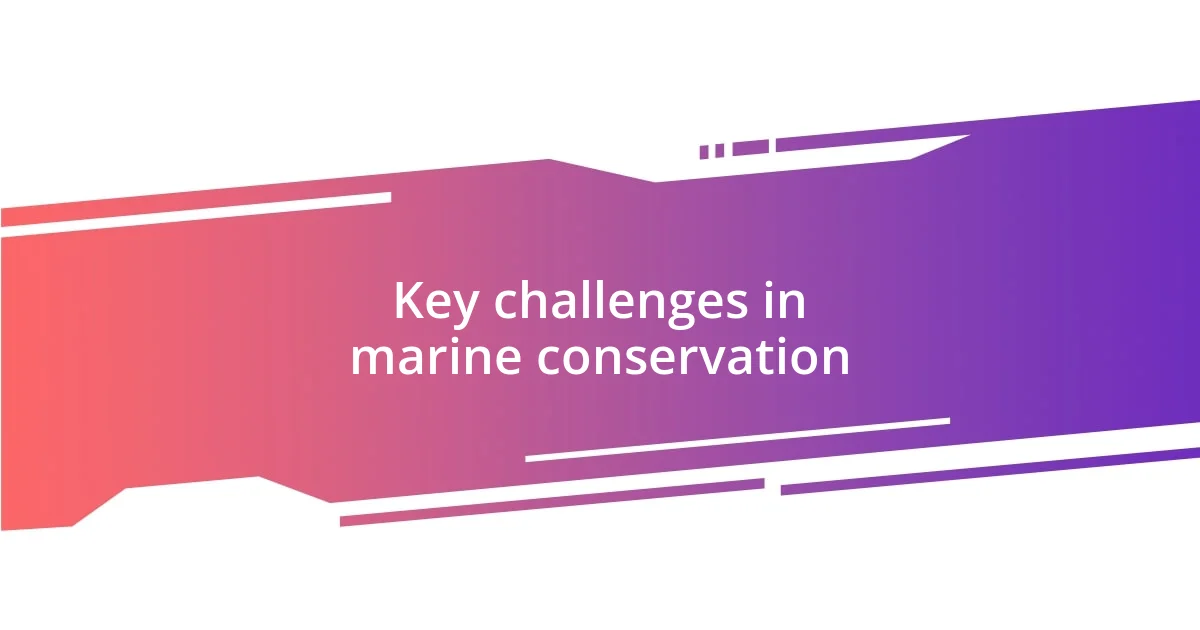
Key challenges in marine conservation
The challenges in marine conservation are complex and often intertwined. One major issue is overfishing, which I witnessed firsthand during a visit to a coastal fishing community. The fishermen spoke of dwindling catches and shared stories of larger species they once commonly encountered, now nearly absent. It was heart-wrenching to hear how proud traditions were slipping away due to unsustainable practices.
Pollution stands as another significant hurdle. On a beach cleanup day, I found myself increasingly frustrated as we filled bags with plastic debris. Each piece seemed to symbolize a broader failure to protect our waters. With microplastics infiltrating marine life, it’s alarming to think how this pollution not only harms ecosystems but also finds its way back to our plates.
Climate change poses perhaps the most daunting challenge. I remember attending a seminar where experts showcased the devastating effects of rising sea temperatures on coral reefs. The thought of these vibrant ecosystems bleached and dying is a constant reminder that we must act urgently. I’m often left wondering: if we don’t unite to face these challenges, what future will our oceans have?
| Challenge | Description |
|---|---|
| Overfishing | Depletes fish stocks and disrupts marine biodiversity. |
| Pollution | Contaminates marine habitats and harms wildlife. |
| Climate Change | Leads to rising ocean temperatures and coral bleaching. |
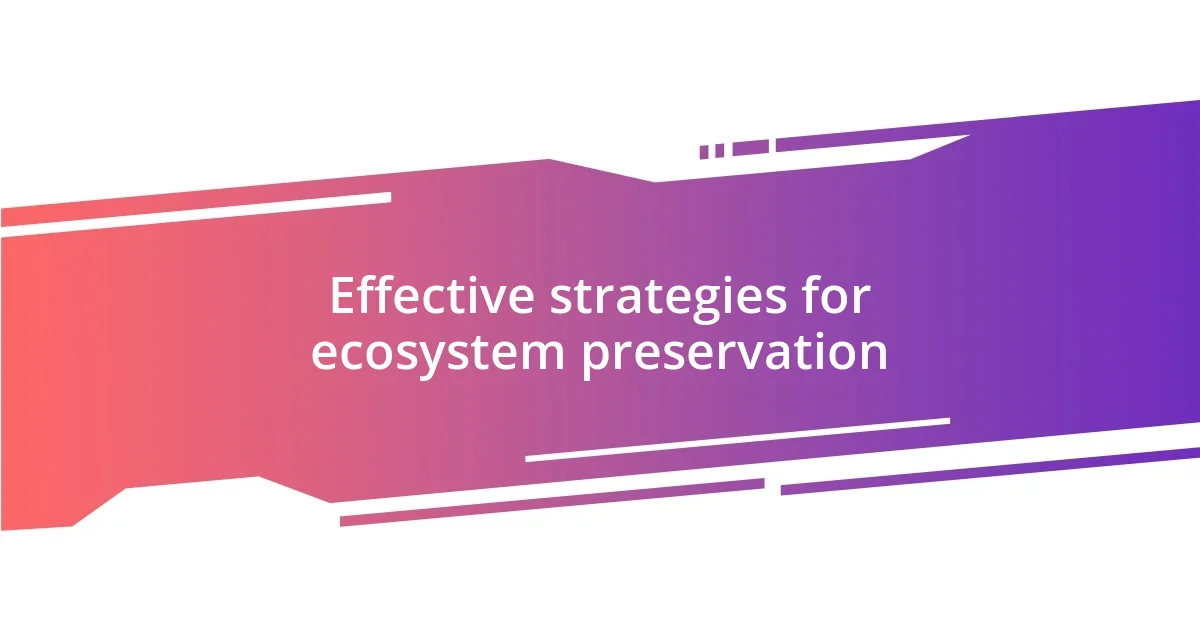
Effective strategies for ecosystem preservation
Effective strategies for ecosystem preservation require both individual commitment and collective action. I’ve often thought about the small changes I can make in my own life, like reducing single-use plastics or choosing sustainable seafood. Every little choice adds up, and it feels empowering to know I’m part of a broader movement.
Here are some effective strategies that can drive meaningful change:
-
Community Engagement: Involving local communities in conservation efforts helps raise awareness and builds a collective sense of responsibility. I recall participating in a local marine protection initiative, and the camaraderie among volunteers was inspiring.
-
Sustainable Practices: Promoting sustainable fishing and farming methods protects marine resources. I’ve enjoyed meals made from responsibly sourced seafood, knowing it supports healthier ecosystems.
-
Education and Advocacy: Educating others about marine conservation is crucial. I often share what I’ve learned during beach cleanups with friends and family—it’s incredible to see their shifts in perspective.
-
Policy Change: Supporting legislation that protects marine areas can lead to long-term preservation. I remember attending a town hall meeting, where passionate discussions about local policies left me hopeful for future actions.
-
Restoration Projects: Engaging in habitat restoration, like planting mangroves or restoring coral reefs, is profoundly rewarding. After participating in a coral planting event, I felt a deep connection to the ocean, as if I was nurturing a part of it back to life.
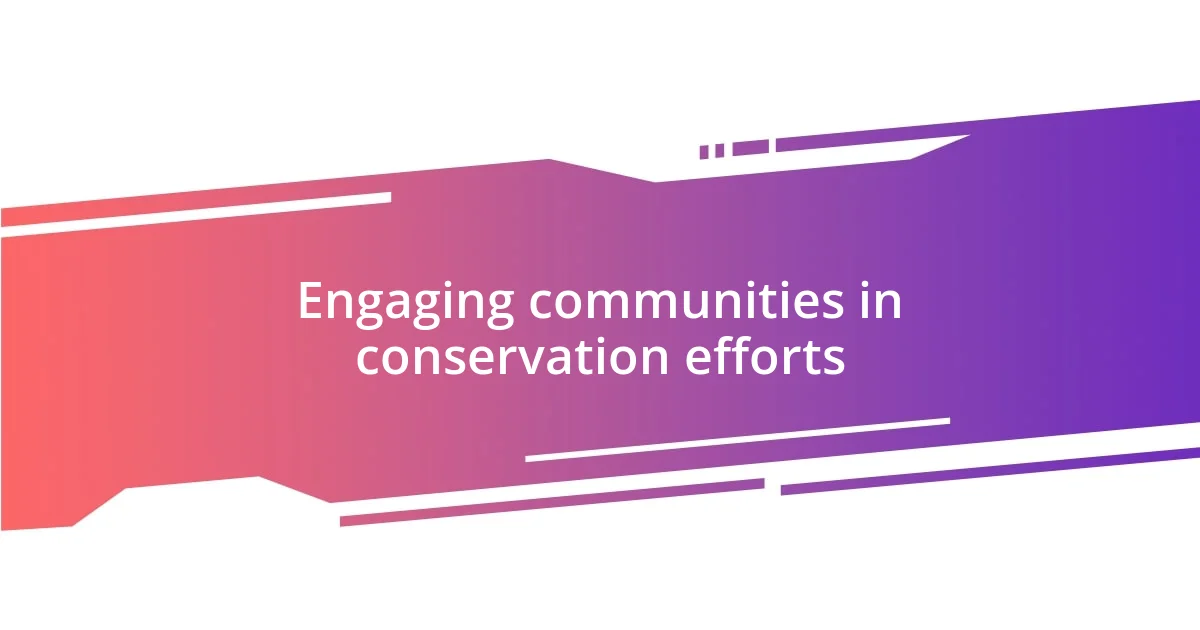
Engaging communities in conservation efforts
In my experience, engaging communities in conservation efforts can be transformative. I once joined a local initiative to hold workshops on the importance of marine ecosystems. The feedback was overwhelmingly positive; participants expressed a newfound appreciation for the ocean and how their daily choices can impact its health. It made me realize that when people feel informed and involved, they often become passionate advocates for nature.
One striking moment for me was during a beach cleanup when a family approached me, puzzled about the impact of their litter. I took that opportunity to explain how every piece of trash left on the shore can travel to the ocean, affecting marine life. To my surprise, they immediately committed to reducing their plastic use and started spreading the word. Isn’t it powerful how a simple conversation can spark change?
I’ve also seen firsthand how collaboration can strengthen conservation efforts. For instance, a local community center organized a “Marine Awareness Day” where fishermen, environmentalists, and families came together. The stories shared created a tapestry of knowledge and tradition, reminding everyone that we all share the ocean’s fate. This synergy not only builds relationships but also cultivates a deep sense of ownership over local marine resources, inspiring actions that ripple outward.
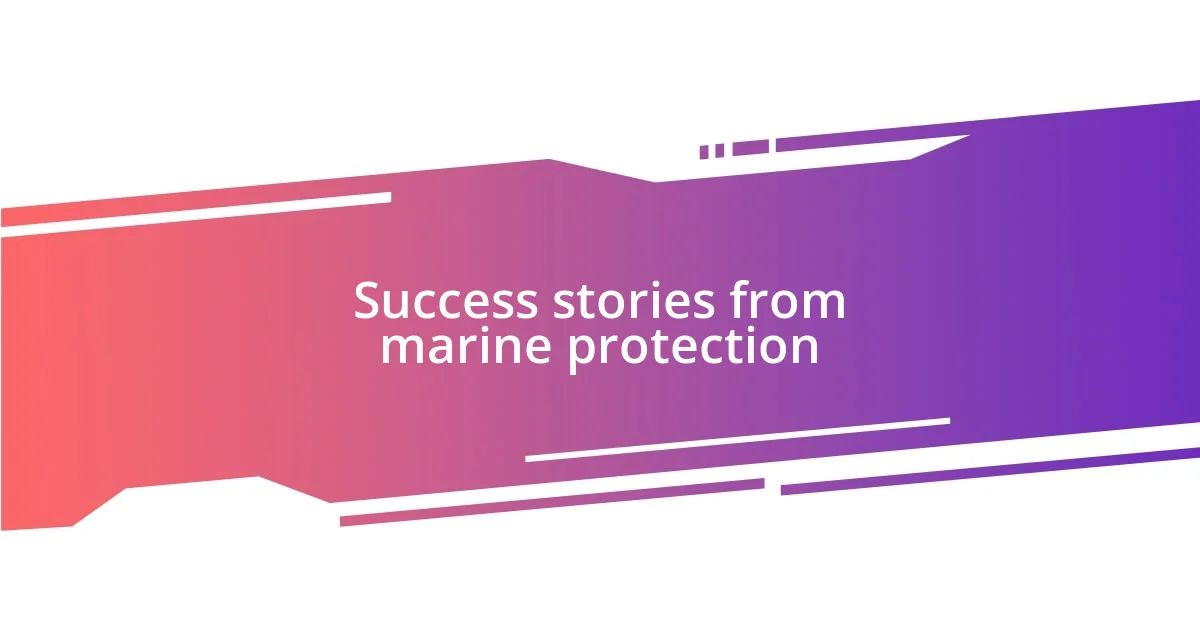
Success stories from marine protection
One heartwarming success story that stands out to me is the revitalization of the Chesapeake Bay. Thanks to collaborative efforts among local communities, governments, and scientists, pollution levels have decreased significantly since the 1980s. I was fortunate enough to participate in a tree-planting event along the bay’s shore, and seeing the young saplings take root felt like planting hope itself. Isn’t it incredible how nature can bounce back when given a chance?
Closer to home, I witnessed the impact of marine protected areas (MPAs) on local fisheries. In my town, regulations established a no-fishing zone that allowed juvenile fish to thrive and mature. I can still recall the joy of diving in those waters after a few years; they were teeming with life! Observing larger, healthier fish and vibrant coral reefs reaffirmed my belief that sometimes, giving nature a break can lead to remarkable results.
Another inspiring moment for me was when a young girl, whom I mentored during a marine science camp, presented her project on ocean pollution at a local fair. She had taken the initiative to create awareness among her peers about plastic waste. Watching her passionately defend her ideas reminded me that the next generation carries the torch for conservation. Isn’t it uplifting to think that each of us can inspire someone else to make a difference?
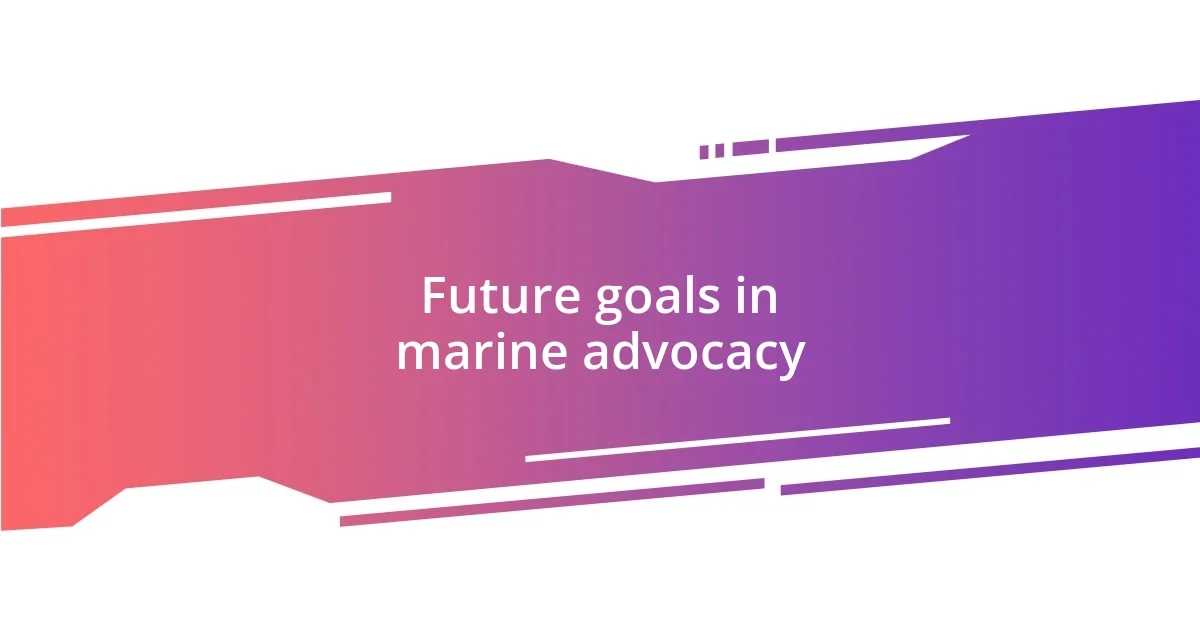
Future goals in marine advocacy
As I look toward the future of marine advocacy, I envision a world where education takes center stage. The more we teach our youth about the intricacies of marine ecosystems, the more empowered they will be to advocate for our oceans. Just recently, I volunteered at a school program where children expressed their concerns about plastic pollution, and it warmed my heart to see how deeply they cared. Isn’t it inspiring how the next generation might possess the knowledge and passion to make a real difference?
I also aim to amplify the voices of marginalized communities in marine conservation. I’ve met fishermen whose livelihoods depend on healthy seas, yet their insights often go unheard. By creating platforms for these individuals to share their experiences and knowledge, we can foster inclusivity and contribute to more holistic solutions for marine protection. When everyone has a seat at the table, don’t you think we create stronger, more effective policies?
Lastly, my goal is to advocate for stricter policies against oceanic exploitation. Witnessing the effects of overfishing firsthand during a trip to a depleted reef was shocking. It served as a stark reminder that without robust regulations, our oceans are at risk. I believe we need to rally behind policies that promote sustainable practices. When will we recognize that safeguarding our oceans is not just an option, but a necessity?
